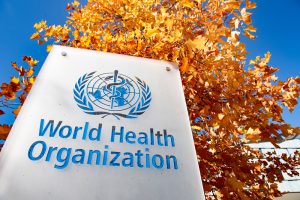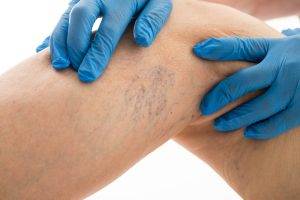This article first appeared in gutCARE Blog.
Haemorrhoids, also called piles, happen when blood vessels around the lower rectum and anus become swollen or irritated. It’s believed that nearly three out of 4 adults have experienced haemorrhoids at some point and that by age 50, more than half of everyone will have dealt with this condition.
Piles often go away on their own without treatment. However, they can cause mild-to-severe pain and discomfort as they run their course, sometimes lasting for a week or two. Luckily, there are many treatment options available to help you deal with the symptoms until they clear up. Here are some of what you can do to ease haemorrhoid symptoms and prevent them from recurring.
PSA: Medical Channel Asia (MCA) is now on Telegram! Join us here https://t.me/MedicalChannelAsia for daily reads and the latest updates at your fingertips!
1. Bump up your fibre intake.
Fibre is an essential nutrient for digestive health: it helps the body absorb water and makes stools softer and easier to pass, thus reducing pressure on haemorrhoids. Foods rich in fibre include whole grains, fruits, vegetables, nuts, and legumes. Some people may need to take fibre supplements if their diet can’t cover their recommended daily intake.
2. Take a sitz bath.
Soaking in warm water is an excellent way to relieve pain and itching and gently cleanse the anal area after bowel movements. Fill a bathtub with a few inches of warm water and then soak the affected area for 10 to 15 minutes, 2 to 3 times a day.
You can also try “sitz baths” by using a small basin that fits over the toilet. Soaking will be more convenient this way. You may also add other ingredients to the water, such as a cup of Epsom salt, which reduces pain and provides relief.
3. Don’t hold it in.
Listen to your body. The best time to go is when you first feel the urge. When you delay, the bowel will continue to reabsorb water from the stool, making it more challenging when you finally answer the call of nature. Likewise, it is essential not to force it since pushing and straining will worsen your haemorrhoids.
4. Try a squat position.
Try elevating your feet with a step stool as you sit on the toilet. Raising your knees in a squat position will adjust the bearing of the rectum and make bowel movements easier. And speaking of movement, do try to exercise more to aid digestion and prevent constipation. Walking for 20 minutes a day is already a great way to start.
5. Hydrate and lubricate.
Mix a tablespoon of mineral oil with yoghurt or similar food and take it at breakfast and lunch — this will make stool slide more easily and relieve haemorrhoids.
Moreover, do try to keep hydrated throughout the day. Drinking enough water, paired with a high-fibre diet, will help ease constipation as the insoluble fibre absorbs more water, making the stool softer and more manageable. Aside from water, fruit juice helps, too, since it bumps up both fibre intake and hydration.
6. Take over-the-counter medicine.
If simple remedies prove not enough to relieve pain and symptoms, you can try off-the-shelf remedies. Painkillers can help with soreness and discomfort. Anti-inflammatory meds can also prevent piles from swelling further. You can likewise opt for over-the-counter ointments and creams to temporarily relieve pain and itching.
Conclusion
Haemorrhoid symptoms commonly go away on their own within one or two weeks. You can wait for the condition to run its course while relieving it with these self-care tips, but knowing when to seek medical treatment is critical. If you are experiencing any unusual symptoms, you can call on a specialist to walk you through treatment procedures and the haemorrhoids treatment cost in Singapore. If these strategies are not working for you and your condition starts to affect your quality of life, it may be time to schedule an appointment.












